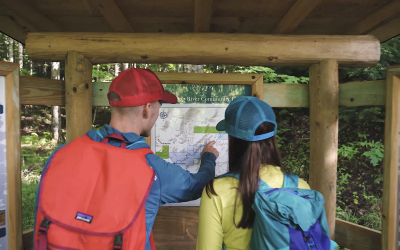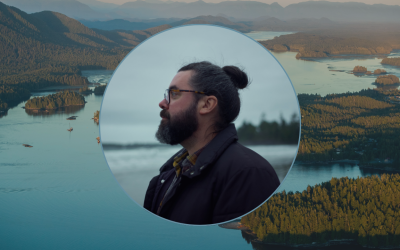Air quality warnings, rising seas, endangered wildlife, Rio’s polluted waterways, Thai beach closures and climate change. Today’s news about our planet and its environment is often dire, asking urgent questions behind the narrative. Will our children have a world worth travelling?
Destination marketers with an eye to the future face the challenge of the intractable balance between profit and planet – matching the needs of business with the needs of the environment, whether local or global. But what is the destination marketing organization (DMO)’s role here and how can they help lead the discussion?
Anna Pollock has been provoking thoughtful conversations about profit and planet for many years as the founder of Conscious Travel, an organization that “enables places to attract and welcome guests in a manner that doesn’t cost the earth.” Drawing from deep experience in the tourism industry, Pollock has pointed to the need for destination marketers to learn from the past to shape a healthier tourism future and has described how DMOs must strive to make tourism a net benefit for their communities.
We asked for her thoughts about how the business of tourism can coexist with today’s environmental challenges.
Destination Think: For tourism destinations, do profit and planet need to be at odds?
Anna Pollock: I am not anti-profit and I don’t believe for a second that being profitable is incompatible with living in harmony with the planet’s natural laws. On the contrary, in fact.
Nor am I anti-growth – I’m only against a very inefficient, inappropriate and unnatural form of growth. The problem is that growth is too narrowly defined as visitation numbers.
How else can we define growth?
Simply put, by shifting from quantity to quality, from gross to net impact. What is the point of growing tourism at 5% a year, compounded, if only 10% of the visitor spend stays in the local economy when you could take measures to increase that input to 80%?
Do the math. If in year 1, you received 50,000 visitors who spent $500 and only $50 of that spending stayed in the community you would receive $2,500,000 in net income. Over the next five years you focus exclusively on building flourishing host businesses, and fully engaging the community and you get the retention figure up to $100 (20% – which is still pitiful) then the net income would increase by 100% with no increase in visitor numbers and no increase in infrastructure damage, emissions, waste or resource use due to expansion in numbers.
Aside from economics, why is this conversation important?
Constantly repeating the “profit or planet message” does a disservice to both business and the planet. As population and economic activity expand, the consequence of our current production-consumption patterns become more apparent and either remedial measures (more regulation, taxation and restrictions) or public protest occur.
But once you change the purpose of a system, everything else changes. When you switch from a drive for more to ensuring all stakeholders in the system flourish, all kinds of new opportunities open up.
What kinds of opportunities?
The first thing that happens is that everyone gets involved when they can see how they can benefit from “developing” as in creating, and designing visitor experiences that delight and transform; when employees know they are cared for; when existing businesses are given as much attention as investors from outside the community; when a diverse ecosystem of business structures is encouraged that includes cooperatives, social enterprises and community-owned enterprises; and, most of all, when the community has the chance to decide how much tourism they can handle, in what manner they wish to make guests welcome and what legacies they want to leave their grandchildren.
How can we begin to make these changes?
There’s no generic or simple, fix-it, solution to improving yield and increasing resilience, but the best chance of having innovative solutions emerge is to build communities of people passionate about their place and committed to working together to ensure all its residents can flourish.
If the DMO doesn’t do it, it will happen from within the community. As a DMO, if you don’t start to take responsibility for managing demand, others will take responsibility for either stopping it or managing it.
Under typical, numbers-based definitions of growth, the more successful you are, the more likely you are to undermine the future of the industry. So if you’re in it just for yourself, for a quick buck, you can do fine, but you’re not going to leave a legacy that anyone’s going to thank you for.
We desperately need a positive vision for the future of tourism, for our economies and societies as a whole that harnesses the talents under our noses – the people like us who call this place home.
Featured image credit: U.S. Army, Flickr










Profit and planet have to co-exist. Learning and sharing the successful techniques for doing so across borders will be a great start to getting us onto a more sustainable industry path.
Profit is an important economic driver. The question is ‘whose profit’? Local community growth & benefit have to be part of the story, as should measurements around resource usage, environmental and local impact etc. Examples of how this is being done well that we are able to share will help, as the message starts to get its cut-through. Great article. Thank you
Yes, “Whose profit?” is a great question and we look forward to sharing more destination success stories in the future. Thanks for the comment, Suzanne.
Thanks for re-posting this interview David which seem more relevant today than ever.
It is, and the message still needs to be shared. Thanks, Anna!